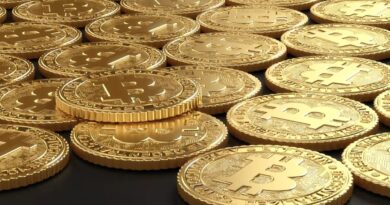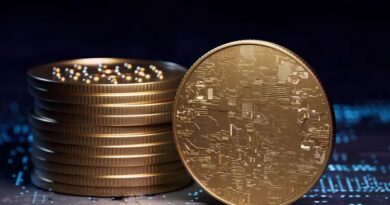Sam Bankman-Fried’s Closest Friends Will Testify Against Him. Here’s Who Else We’ll Hear From
Sam Bankman-Fried’s trial is set to start this Tuesday, and some of his former closest friends, have become his biggest threat.
-
FTX founder Sam Bankman-Fried goes on trial this week after the crypto exchange’s collapse and alleged theft of billions.
-
Key witnesses include former colleagues and friends, notably Caroline Ellison and Gary Wang, who had deep ties to FTX and Alameda Research. Ellison, once romantically involved with Bankman-Fried, has insights into FTX’s internal workings and admitted to misleading actions.
-
Other witnesses like Nishad Singh and Wang held significant roles at FTX and Alameda, and have pleaded guilty to related charges.
It’s been almost a year since the global crypto exchange FTX shattered and its founder and former CEO Sam Bankman-Fried lost all credibility. This week, he will try to convince a jury of his peers that he deserves to be a free man again – but first, we’re going to hear from some of his closest friends.
The six-week trial will see prosecutors pore through testimonies, internal documents, emails and mountains of evidence certain to shed new light on the crypto exchange’s alleged theft of billions of dollars in customer funds. The most striking evidence could come from the prosecutors’ witnesses – those who Bankman-Fried once counted as his friends and allies.
Several of Bankman-Fried’s former colleagues and friends will testify against the one-time crypto mogul following plea deals they struck with the U.S. Department of Justice, including his former romantic partner Caroline Ellison and childhood friend Gary Wang, who were both deeply involved in the daily workings of both FTX and its quant-driven trading shop, Alameda Research. Another two individuals, who prosecutors have yet to publicly name, may testify if granted immunity, suggesting they may also be tied to the exchange. The DOJ also announced over the weekend that prosecutors intend to call former FTX customers from around the world and investors as witnesses during the trial.
Caroline Ellison is among the most highly-anticipated witnesses expected to take the stand against Bankman-Fried. As the one-time head of Alameda Research – the crypto hedge fund tied to FTX – she can speak to the companies’ relationship and the amount of FTT it held, court documents indicate. Perhaps somewhat more salaciously, she also had a personal relationship with the FTX founder. She is said to be one of the few insiders who actually knew what was going on inside FTX.
Ellison, the child of Massachusetts Institute of Technology (MIT) economists, first met Bankman-Fried at their previous employer, the Wall Street-focused trading firm Jane Street. They reunited in October 2021 after Bankman-Fried convinced her to join his crypto company over a Bay Area coffee.
In a plea hearing shortly in December 2022, shortly after the collapse of FTX, Ellison admitted to knowingly misleading lenders and receiving “an unlimited line of credit without being required to post collateral” from FTX for her then-hedge fund Alameda Research, even though the company didn’t need the money.
Ellison pleaded guilty to fraud charges and signed a plea deal, sans criminal tax violations. Her insight into FTX and Alameda’s alleged comingling of customer funds could prove pivotal from the stand.
She is also thought to be the person that knows Bankman-Fried best on a personal level, given the nature of her romantic relationship with the former crypto mogul, which slowly fizzled out in February 2022, according her diary, which Bankman-Fried leaked to the New York Times in August.
In her diary, she wrote mostly about her feelings for Bankman-Fried and how going through multiple breakups with him was affecting her work at Alameda Research, which she wrote “felt too associated with [him] in a way that was painful.”
Though she didn’t mention anything about her living situation in her diary, it is known that Ellison, among other FTX employees, lived together with Bankman-Fried in a $40 million penthouse in Albany in the Bahamas.
This makes Ellison one of the few insiders who seemed to have been around Bankman-Fried 24/7, both professionally and romantically, which gives her a unique perspective to speak about the former FTX founder’s ethic as a businessman as well as his character on a personal level.
Nishad Singh was another early hire at Alameda Research, when the trading firm was still based in a Berkely, California apartment with only four other employees. Singh, who in his high school days was close with Bankman-Fried’s brother, served as director of engineering at Alameda and like Ellison, lived with Bankman-Fried in his 10-person luxury penthouse in the Bahamas. After a year and a half at Alameda, he began a new role as the head of engineering at the then-newly launched FTX derivatives exchange, where he had minimal supervision.
Singh was reportedly one of three people who controlled the keys to FTX’s matching engine, the system that facilitated the exchange’s processing of buy and sell orders and allowed those with a key to move around funds in any way they wanted. He also had knowledge of the exchange lending customer funds to Alameda. Like Ellison, he pleaded guilty in February this year to six criminal charges, including fraud and conspiracy.
Gary Wang is the co-founder of Alameda Research and FTX – and was Sam Bankman-Fried’s right hand. Wang served as chief technology officer for both firms and has been described as a critical player in the FTX saga.
Wang also knew Bankman-Fried on a personal level, from being his buddy at a math camp in high school to later sharing a dorm in college at MIT. He was also one of the 10 roommates at the Nassau penthouse Bankman-Fried resided in. The Commodities and Trading Commission (CFTC) alleged that Wang “allowed Alameda to maintain an essentially unlimited line of credit on FTX.”
In December 2022, together with Ellison, Wang pleaded guilty to charges related to FTX’s collapse.
Andria van der Merwe is an economist specializing in complex regulatory investigations of financial markets, according to her biography on consulting firm Compass Lexecon’s website. As an expert in financial regulation and market risks, she may provide insight into how Bankman-Fried and his inner circle allegedly conspired to violate federal securities and commodities law. She may also attest to the impact of FTX’s collapse on the broader financial markets.
University of Notre Dame Professor Peter Easton will provide an overview of Alameda Research and FTX’s financials, including the Alameda balance sheet that set into motion the collapse of Bankman-Fried’s multi-billion-dollar crypto empire, prosecutors said. His testimony will discuss how customer funds were held and whether balances in actual bank accounts matched balances in FTX’s internal ledgers.
Joseph Pimbley, a financial consultant, is an expert in financial risk management. In his testimony, he may tell the jury that “FTX’s software infrastructure … had insufficiently
robust reporting and insufficient testing and quality assurance of data integrity and code,” that external users, like Bankman-Fried, could not have seen or easily uncovered, a court filing said. Defense attorneys said they intend to call him to counter testimony from Wang and Singh.
Andrew Di Wu, a professor of finance and technology at the University of Michigan, may provide the jury with an overview of how cryptocurrency exchanges, and the blockchain technologies that undergird them, operate. As part of his testimony, he may also explain to the court “the unique complexities in operating centralized cryptocurrency exchanges, particularly those with cross-border operations…and the challenges in processing transactions in multiple fiat and cryptocurrencies,” a court filing said.. The defense said Wu’s testimony could come in response to an FBI agent testifying for the prosecution.
As of Sept. 29, some key executives and other individuals closely tied to Bankman-Fried were not publicly named as possible witnesses, including a few key figures at FTX.
Before Caroline Ellison took over as the sole CEO of Alameda Research, she shared the position with Sam Trabucco – who stepped down as co-CEO in August of 2022 after only a year in the position. He oversaw Alameda’s expansion beyond its initial business as a market maker for lower-volume crypto assets into riskier trades and led the firm to “huge” profits, he claimed in a post on X in 2021. Trabucco was not named as one of the executives aware that FTX sent customer funds to Alameda in a Wall Street Journal article last year.
Daniel Friedberg was FTX’s chief compliance officer from March 2020 to November 2022. He’s previously been tied to an online poker website that was caught up in scandal in which an estimated $20 million of funds were misappropriated and where he reportedly told an ally to put the blame on an unnamed consultant to the company. He joined FTX after being a partner at Fenwick & West LLP, where he led the firm’s cryptocurrency division.
Last November, he reportedly provided details about FTX to federal prosecutors. Reuters reported that he “expect[ed] to be called as a government witness” in Bankman-Fried’s trial, though his name has not yet been confirmed. His attorney did not pick up when called for comment.
Ryan Salame, a co-CEO of FTX’s Bahamian subsidiary, FTX Digital Markets, became the fourth highest-ranking official within Bankman-Fried’s inner circle to plead guilty to federal charges after accepting a plea deal this fall.
Under Bankman-Fried’s direction, Salame made millions of dollars worth of illegal campaign donations to dozens of U.S. congress people, campaign finance records show. However, despite helping his former boss gain influence on Capitol Hill, Salame alleges he had no knowledge of the depths of FTX’s financial troubles or its executives’ alleged crimes.
Salame has reportedly handed over some documents relating to FTX’s collapse to federal prosecutors, but according to the New York Times, he will not testify in court. A previous court filing said he would invoke his Fifth Amendment right against self-incrimination if called to the stand.
Bycoindesk




